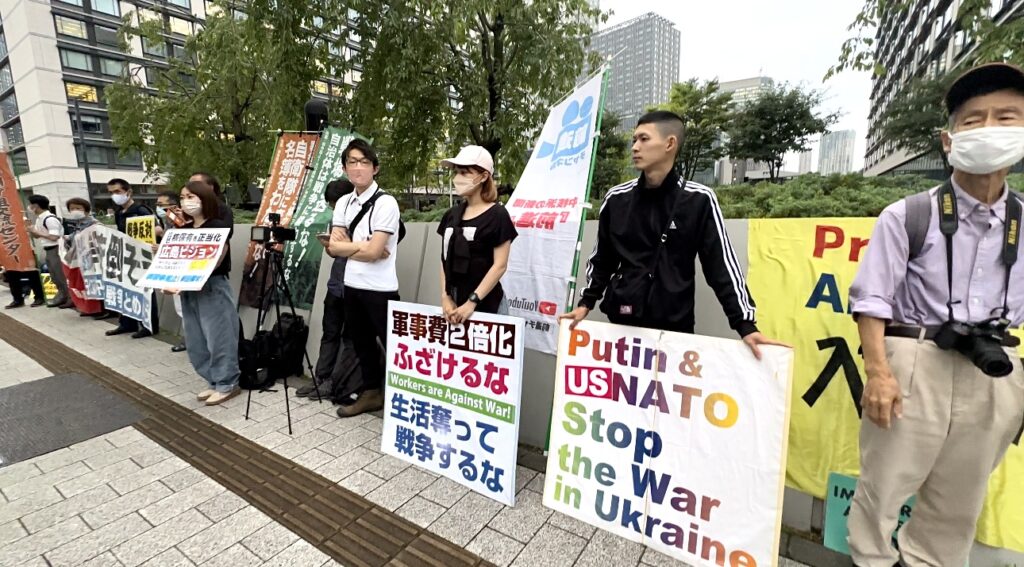
- ARAB NEWS
- 19 Jul 2025

TOKYO: Most respondents to a survey conducted by Asahi Shimbun newspaper expressed a deep concern over the wars, emphasizing the urgent need for active discussions on the current and possible future wars.
On October 11, the Norwegian Nobel Committee announced that Nihon Hidankyo, a Japanese organization representing survivors of the 1945 atomic bombings of Hiroshima and Nagasaki, would be the recipient of the Nobel Peace Prize in 2024.
As a follow-up, the Asahi Shimbun conducted an online survey of readers to ask if they ever engage in discussions on war. The results, published November 9, were from 2,546 valid responses. Those replying yes outnumbered the negative replies by 67% to 33%.
When asked why they responded yes, 1,090 readers said they were concerned about present wars. They were followed by “war is something to be avoided” (994 replies); general concerns over peace and international problems (601); to keep from spreading false information (591), anxieties heightened (563); changes in situations in which Japan might become involved (547); and concerns over increased militarization by Japan (473).
The reasons given by those who replied in the negative included finding it difficult to discuss serious topics (with 307 responses), having no one available with whom to discuss (252), and not knowing anyone familiar with the topic of war (177); satisfied with contents of books, newspapers and news sources (121); find the subject difficult to deal with (114); war seems a remote event (113); and it’s difficult to understand situations overseas (75).
Those who gave positive responses were then asked which war they discussed. The responses were Russia/Ukraine, with 1,258 responses, followed by Israel/Gaza (1,059), the Pacific War (853), World War 2 (725), the Battle of Okinawa (479), the Sino-Japanese War (332), and the Vietnam War (249).
Asked where they obtained information about wars, in descending order, the respondents gave television, with 2,063 responses; newspapers (1,954); movies and dramas (865); books (807); war memorials (677); internet news (642); and hearing talks given by war survivors (589).
To the question, “Is there something you think you yourself can do to prevent war?” 32% replied in the affirmative, 25% in the negative, and 43% said they didn’t know.
A 28-year-old woman from Kanagawa shared a poignant personal story, “My grandfather, who lived to age 101, used to talk about the war. With the world now entangled in the flames of war, I have strong memories of how he opposed war.” Her personal connection to the war evokes empathy and connection with the audience.
A 43-year-old woman in Yamaguchi remarked, “While war is something that absolutely shouldn’t happen when it does, I’m saddened there’s nothing I can do about it.” This perspective reflects the feelings of many who feel powerless in the face of war.
A 50-year-old man in Ishikawa expressed, “My heart aches when I hear about the deaths of children in Gaza from attacks by Israel. I ponder why such inhumane wars are permitted to happen but have no one with whom to discuss this, which magnifies my sense of impotence.” His sense of helplessness underscores the urgency of the issue and makes the audience feel the need for action.
“My daughter, who is in the sixth grade of primary school, said to me, ‘I wonder if I’ll live to reach adulthood. Japan might be drawn into a war,” a Tokyo woman (54) remarked, adding, “I never thought we would become a country where children would be moved to say such things.”
“In the midst of a changing world situation, what needs to be bolstered is not military power but diplomacy,” said a 56-year-old Tokyo man.
A Gunma woman (73) was one of several who commented that one thing people could do was “keep a close watch on politicians.”
A man in Miyagi (age 65) wrote, “It’s all we can do to quietly tell the next generation and the next-but-one generation that with war, a bright future cannot be built.” This perspective emphasizes the importance of educating future generations about the consequences of war.